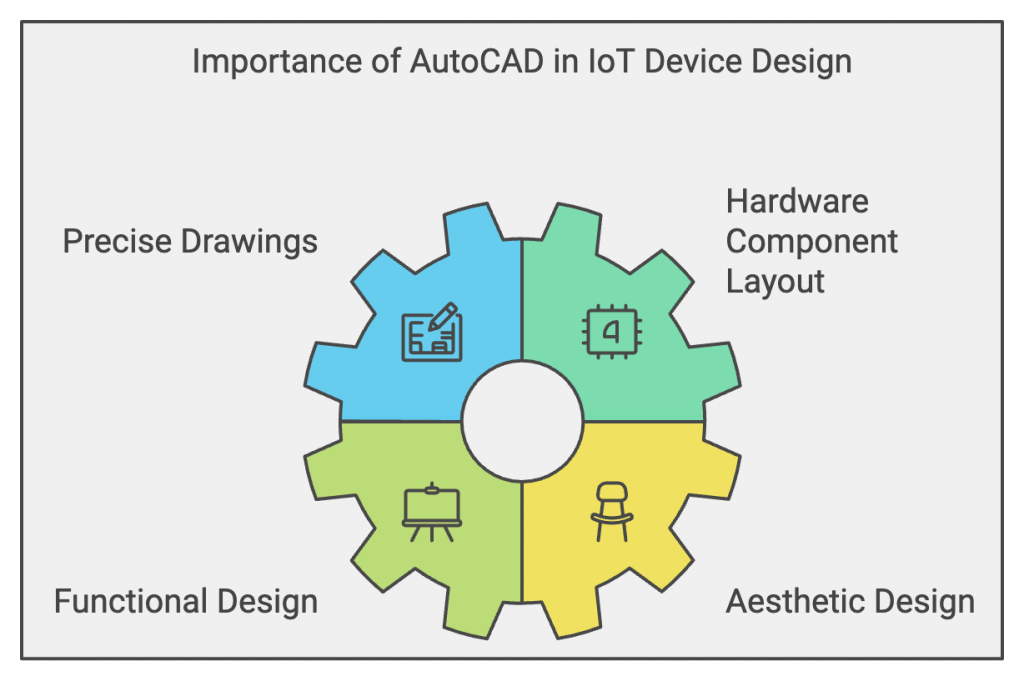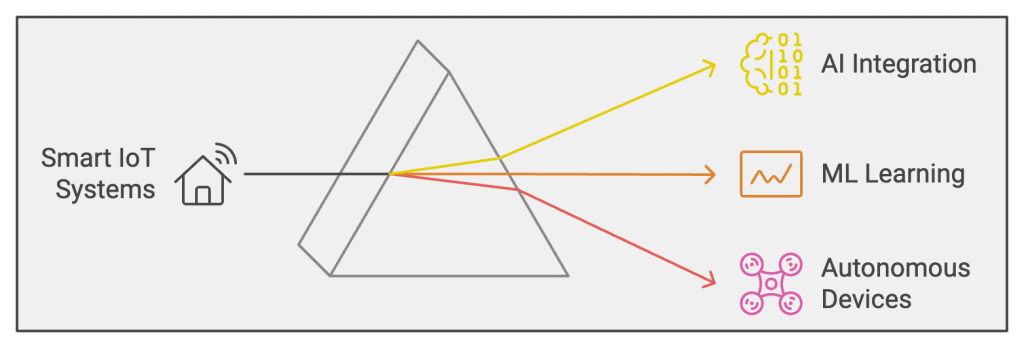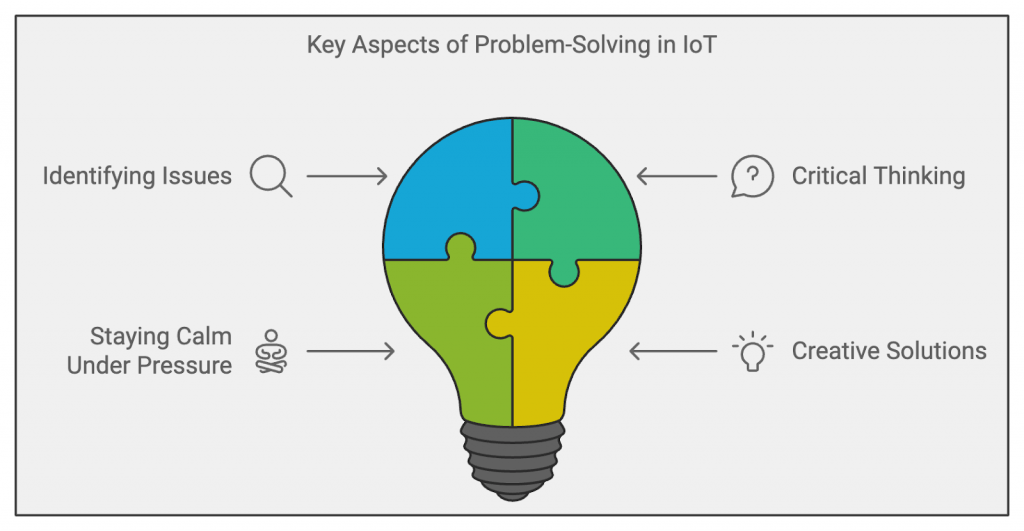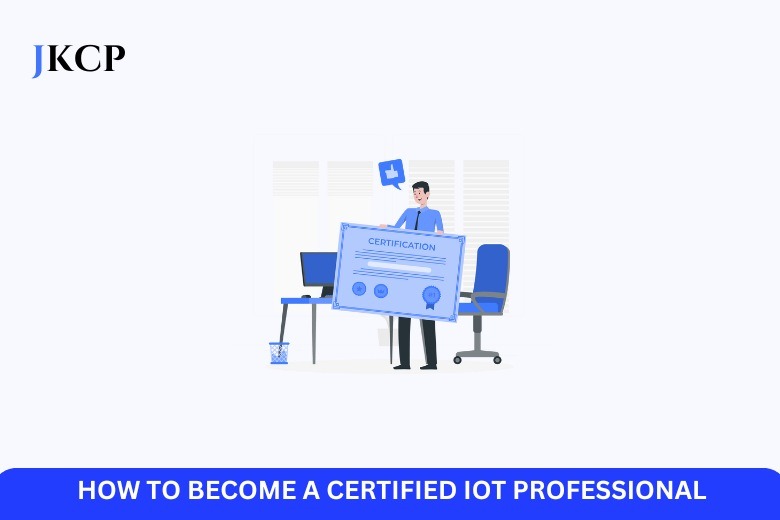Top 10 Essential Skills Required to Become an IoT Engineer
Have you ever wondered how devices like smart speakers, fitness trackers, and even smart refrigerators work? Welcome to the IoT (Internet of Things) world, where everything is connected, and the future is more exciting than ever! If you’re considering diving into this field and becoming an IoT engineer, you’re in the right place. In this article, we’ll walk you through the top 10 skills you need to succeed in IoT, whether you’re just starting or looking to level up your game.
1. Programming Skills
At the heart of IoT lies programming. You should know how to code to build or manage IoT systems. Thus, you need to master two of the most essential programming languages – Python and JavaScript. Python is a brilliant choice for writing the logic behind IoT applications, while JavaScript helps you create secure and scalable backends.

For example, when developing an IoT solution like a smart home system, Python can manage the automation tasks, while JavaScript runs on the server, handling the communication between devices. If you’re new to coding, start with Python – it’s beginner-friendly and versatile!
2. Hardware Knowledge
IoT is all about “things,” right? That means hardware knowledge is crucial. You need to understand how sensors, microcontrollers, and other components work together to create smart devices.
For instance, when building a smart thermostat, you need to know which sensors can measure temperature and how the microcontroller processes the data. This skill allows you to design and troubleshoot IoT systems effectively. A solid grasp of embedded systems will also be useful, as these are the backbone of most IoT devices.
3. AutoCAD
IoT engineers frequently work on designing physical products, which is where AutoCAD comes into play. AutoCAD helps you create precise drawings and plans for IoT devices, ensuring that all hardware components fit together perfectly.

Let’s say you’re designing a new wearable fitness tracker. You’ll use AutoCAD to model the device’s physical layout, ensuring the sensors and other components are positioned correctly. AutoCAD knowledge is essential for ensuring your IoT devices are functional and aesthetically pleasing.
4. Big Data
IoT devices generate a lot of data, and handling and analyzing that data is critical. Enter Big Data. As an IoT engineer, you’ll need to process data from various sources, whether it’s smart homes, healthcare devices, or industrial equipment. Tools like Apache, Hadoop, or Spark are commonly used to manage and analyze these massive datasets.
For example, imagine managing a fleet of connected vehicles. Each car generates real-time data about speed, location, and engine health. An IoT engineer must be able to sort through that data and extract valuable insights, such as predicting maintenance needs to avoid breakdowns.
5. Artificial Intelligence & Machine Learning
As IoT networks grow, they become more complex. This is where AI (Artificial Intelligence) and ML (Machine Learning) come in. These technologies help IoT systems learn from the data they collect, making smarter decisions over time.

For instance, AI and ML are often used in smart homes. Think of a thermostat that learns your heating preferences and adjusts the temperature automatically. IoT engineers need to understand how to integrate AI and ML into their systems to make devices more autonomous and efficient.
6. Node.js Development
To manage connected devices efficiently, you’ll need to know Node.js. This open-source, server-side platform is ideal for building fast and scalable network applications. Node.js is heavily used in IoT development because it can handle multiple requests simultaneously, making it perfect for real-time data processing.
For example, companies like Netflix and PayPal use Node.js for their IoT services because it ensures seamless communication between devices and servers. Mastering Node.js will give you a leg up in the IoT engineering world.
7. Cloud Computing
With so many connected devices, the cloud plays a giant role in the IoT. As an IoT engineer, you need to be familiar with cloud computing platforms like Amazon Web Services (AWS), Microsoft Azure, or Google Cloud. These platforms provide the infrastructure for storing, processing, and analyzing IoT data.

For instance, imagine you’re working on a smart city project where thousands of sensors collect traffic, air quality, and energy usage data. You’ll need the cloud to store all this information and run analytics to make the city smarter and more efficient.
8. Information Security
Security is a massive concern in the IoT. Every connected device is a potential entry point for hackers, so information security is crucial. As an IoT engineer, you must know how to protect devices and networks from cyber threats.
This means understanding encryption, performing vulnerability assessments, and implementing security protocols. For instance, securing a smart home network involves ensuring that all devices are updated with the latest firmware and using strong, unique passwords.
9. Problem-Solving Skills
Things go wrong, especially in the complex IoT world. That’s why strong problem-solving skills are a must. Whether it’s a software bug, a hardware malfunction, or a network issue, you need to think critically and come up with solutions quickly.
For instance, suppose a connected medical device suddenly stops transmitting data. In that case, you need to quickly identify whether it’s a sensor issue, a network failure, or something else and fix it before it impacts patient care. Problem-solving is all about staying calm under pressure and finding creative solutions.

10. Communication Skills
Last but not least, being an IoT engineer isn’t just about technical skills – you also need to be a good communicator. Strong communication skills are essential whether you’re working with a team of engineers, collaborating with clients, or explaining complex systems to non-tech folks.
Good communication helps you align with project goals, ensure smooth teamwork, and ensure everyone – from developers to stakeholders – understands the project. Explaining technical concepts can make all the difference in your career.
Conclusion
Becoming an IoT engineer is a gorgeous journey, full of opportunities to work on innovative projects that will shape the future. From mastering programming languages like Python to understanding how AI, hardware, and cloud computing come together, these ten essential skills will set you up for success.
IoT engineering might be a flawless career if you’re passionate about technology and want to be at the forefront of the next big thing. Start building your skill set today, and you’ll be designing the smart systems of tomorrow in no time!



